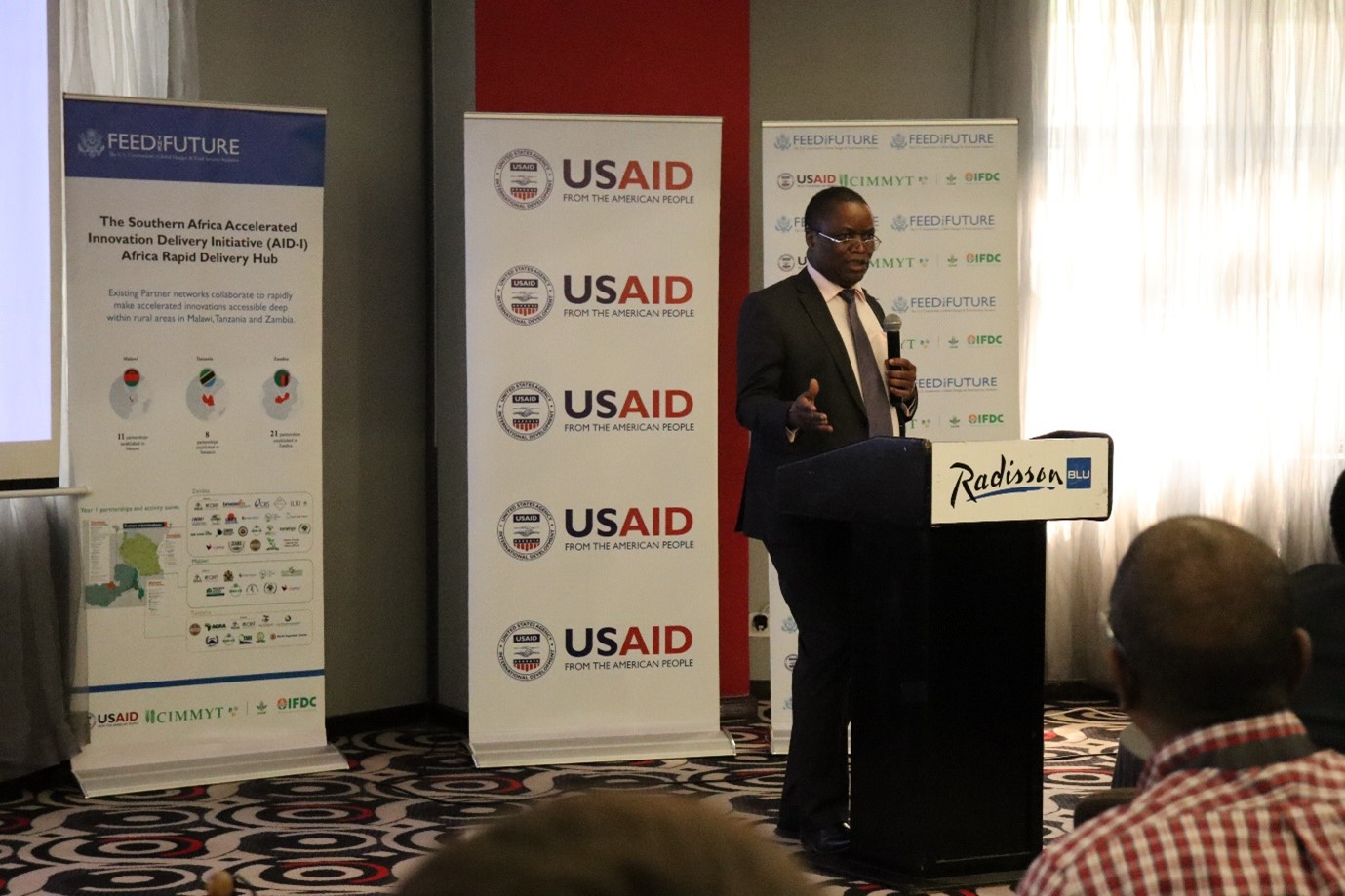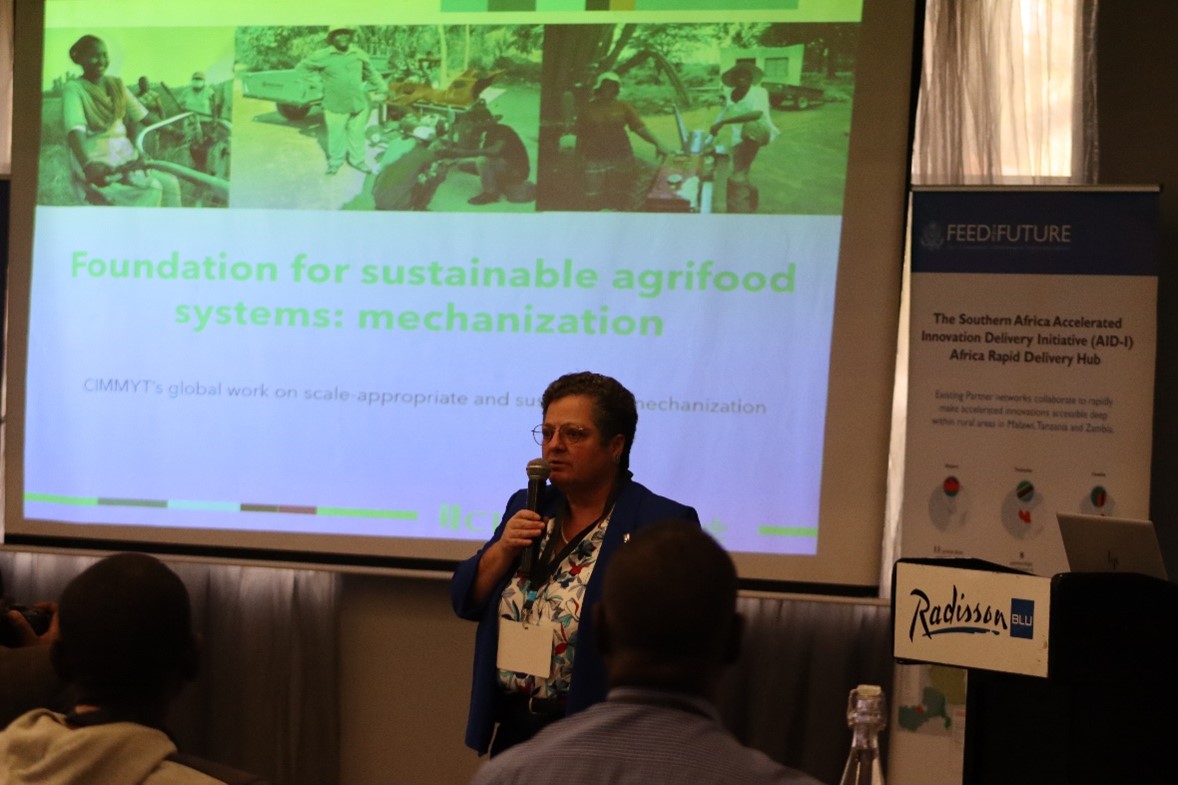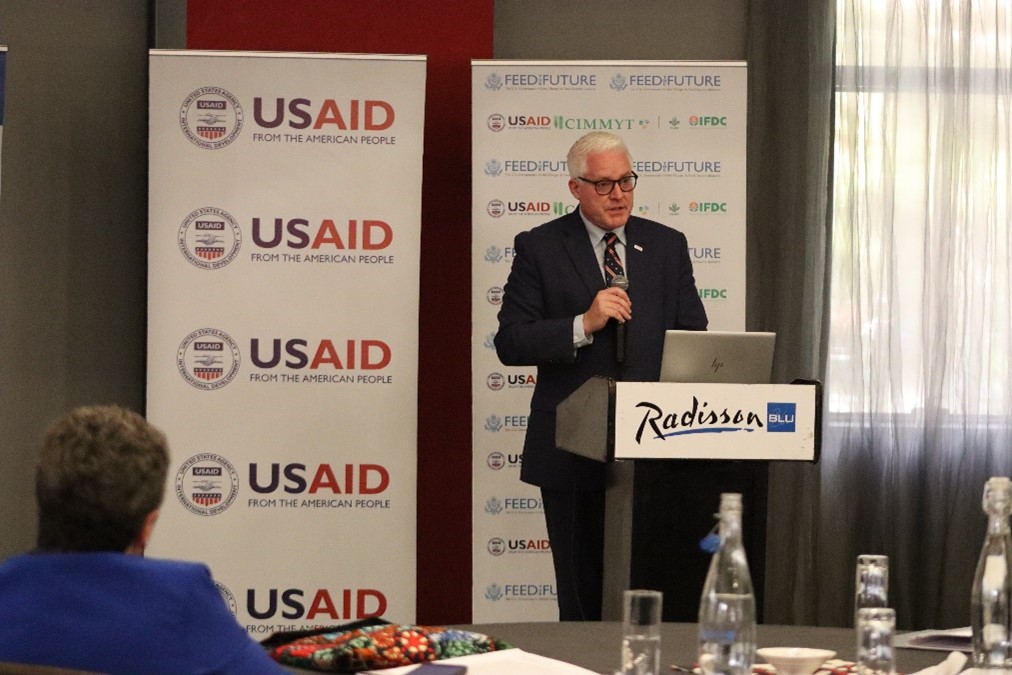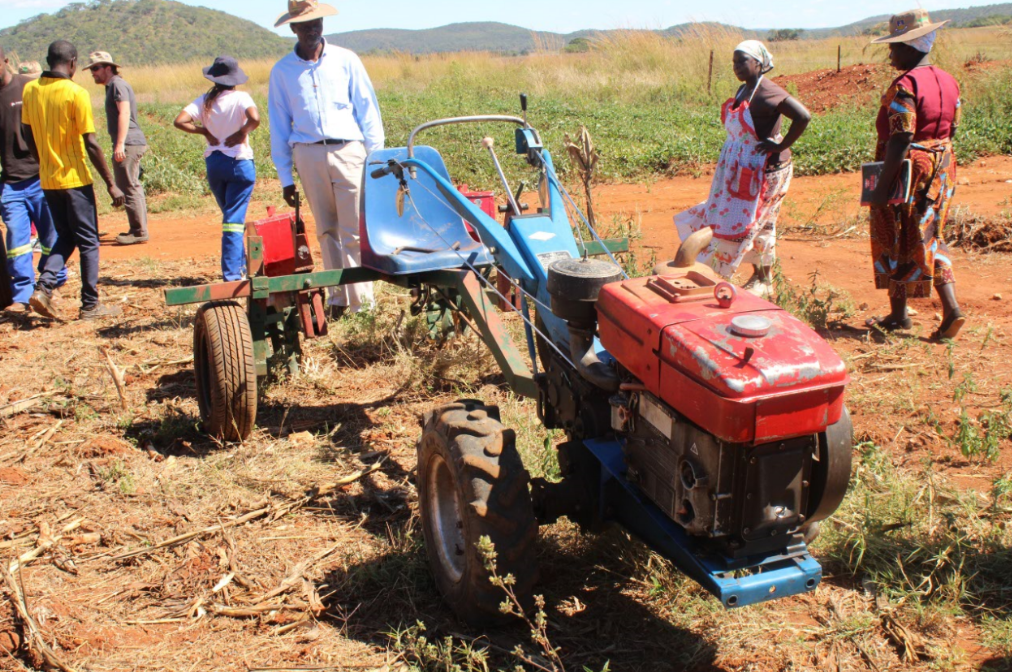
To foster collaboration and knowledge sharing, CIMMYT hosted a 2-day workshop in September 2023 in Lusaka, Zambia, on appropriate mechanization for smallholder farmers in the Global South. This event was part of the Southern Africa Accelerated Innovation Delivery Initiative (AID-I) MasAgro Africa Rapid Delivery Hub funded by the United States Agency for International Development (USAID).
Recognizing that equitable access to finance and credit are key enablers for mechanization, this platform strived to understand smallholder farmer needs and the identification of key financing models to facilitate widespread adoption.
With over 40 participants ranging from government representatives, development partners, and stakeholders from organizations such as USAID, the Food and Agriculture Organization (FAO), the International Institute of Tropical Agriculture (IITA), the International Fertilizer Development Center (IFDC), and Hello Tractor, this regional event provided an opportunity for robust discussions and to align the course of action.
Unpacking mechanization in the Global South
Appropriate-scale mechanization is essential and a top policy priority to transform African agriculture. Evidence shows that nearly 70% of operations in sub-Saharan Africa are done manually. However, human labor is limited and is increasingly scarce and costly given the unfolding transformation of rural spaces in most places, necessitating agricultural mechanization. The cornerstone of this shift lies in integrating small, affordable machines tailored to the operations and needs of smallholder farmers, which must be accessible through market-based financial and business models.
A top policy priority in Zambia
The Permanent Secretary, Technical Services of the Zambian Ministry of Agriculture, Green Mbozi, officially opened the meeting. He lauded the meeting as timely and commendable as agriculture mechanization is a top policy priority for Zambia.

“The government has embarked on a process to formulate a national mechanization strategy, which will serve as a blueprint on how to sustainably promote agricultural machinery and equipment across the value chains. The insights from this workshop would be helpful in feeding into the formulation of the strategy and help in identifying entry points to support sustainable agriculture mechanization,” said Mbozi.
Accelerating change through inclusive dialogues
The dialogue played a crucial role in bolstering support for sustainable agriculture mechanization while tackling challenges hindering active adoption. Mbozi highlighted the imminent launch of an agricultural mechanization strategy developed with technical support from FAO and CIMMYT through the Sustainable Intensification of Smallholder Farming Systems in Zambia (SIFAZ) project.
The mechanization strategy champions sustainable and efficient mechanization practices, strengthens the private sector’s role in mechanization, and provides training and financial support to small-scale farmers, women, and youth. Proposed initiatives include regional centers of excellence, a national mechanization association, and the use of information and communication technologies to promote mechanization.

“It is important to develop the right bundle of mechanization services that meet the needs of farmers and are profitable for mechanization service providers,” said Director of Sustainable Agrifood Systems (SAS) at CIMMYT, Sieg Snapp. “Finding the right financing is needed to support multiple bundles of mechanization services, which provide profits throughout the year.”
Additionally, the SIFAZ project promotes local manufacturing, supporting quality assurance, conducting demand studies, and establishing an agricultural mechanization data bank to catalyze transformative progress.
Key insights from USAID and FAO
David Howlett, the Feed the Future coordinator at the USAID Mission in Zambia, shared with participants that, “USAID is working to address the effects of climate change through mechanization and other adaptation strategies.” Aligning with the central focus of the meeting, he further reiterated that mechanization will be key to building resilience by improving agricultural systems.

Offering insights drawn from country-level experiences on scale mechanization for smallholder farmers, Joseph Mpagalile from FAO said, “FAO has been helping countries develop national agricultural mechanization strategies, with 12 countries in Africa already revising or preparing new strategies for sustainable agricultural mechanization.”
Private sector engagement: lessons from Hello Tractor
Operating across 13 African countries, Hello Tractor has been leveraging digitalization to scale mechanization in Africa since its inception. Hello Tractor facilitates services to over 500,000 smallholder farmers through 3,000+ tractors and combine harvesters, while providing remote tracking of assets and preventing fraud and machine misuse for machinery owners. At the heart of the company are booking agents who connect farmers to solutions to increase productivity and income.
Call to action
As the discussions ended, key outcomes distilled highlighted a pressing need to sensitize farmers on the merits of mechanization and facilitating access through tailored financial resources. Special attention was also directed towards empowering women and youth through implementation of de-risking mechanisms and strategic marketing linkages.
Recognizing the critical absence of data, a compelling call for a funding pool to collect essential information in the ESA region became clear. In addition, it was emphasized that appropriate-scale mechanization should be driven by sustainable business and financing models. The journey towards mechanization is a collective effort, blending policy initiatives, private sector engagement, and research-driven strategies.

 Climate adaptation and mitigation
Climate adaptation and mitigation 
